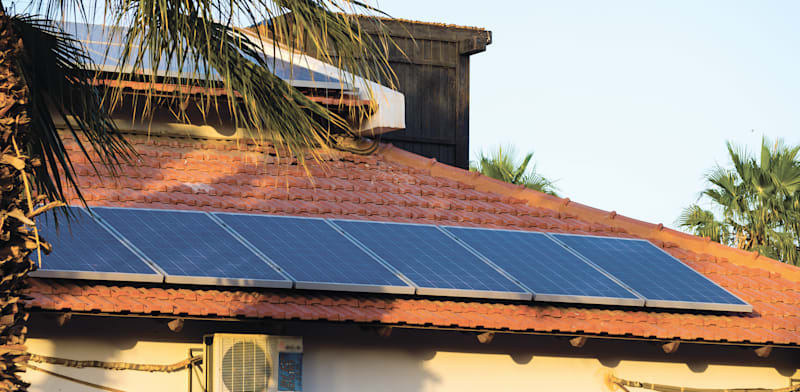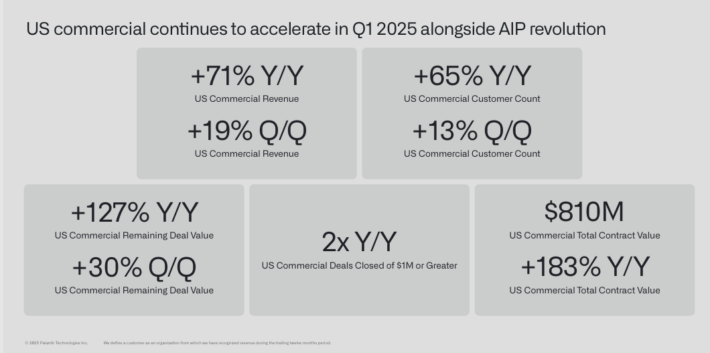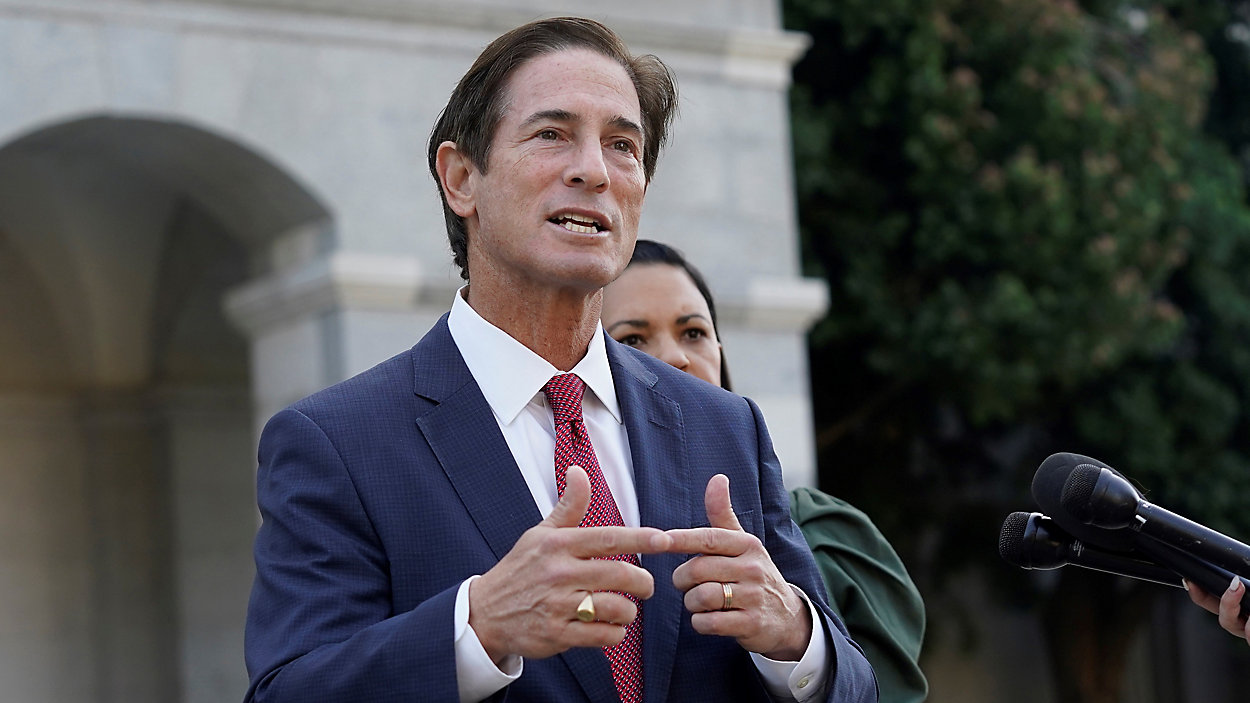Later this year, Israel will become one of the first countries in the world to require the installation of solar panels on roofs, according to new regulations approved by the National Planning Authority, Ministry of Energy and Infrastructure, and the Ministry of Interior. From December, obtaining an occupancy permit (Form 4) will be conditional on the installation of solar panels on roofs of every house with a roof area of more than 100 square meters, industrial buildings, public buildings, and even non-residential buildings with a roof area of 250 square meters or more.
The regulations were approved as part of a trend to expand electricity production from solar panels on roofs, with a target of 100-150,000 roofs by 2030, and increasing production from them even more by 2040. This is to decentralize the grid and increase use of renewable energy. While the benefits are clear, experts and government officials warn that it will cost hundreds of millions of shekels a year in incentivized tariffs paid to the owners of the rooftop solar panels, which will roll directly onto our electricity bills. Despite the criticism, the Ministry of Energy and Infrastructure insists that there is a market failure that needs to be fixed.
The Ministry of Energy and Infrastructure has also approved new payment methods for those who install solar panels on their roofs, with a more rapid return on investment and linking payments to the Consumer Price Index (CPI). All this while locking in the price for 25 years, even assuming that production from solar panels will become more efficient and cheaper in the future. Today, panels that produce up to 15 kilowatts reward the property owner with NIS 0.48 per kWh, 3-4 times the amount paid for panels on large solar fields, and even NIS 0.54 per kWh for properties in large cities. Electricity consumers pay the bill for these incentivized tariffs.
The public is in no rush
Despite the generous subsidy, there are only about 30,000 solar paneled roofs in Israel. According to Ministry of Energy and Infrastructure sustainable energy division head Ron Eifer the reason is “A lack of familiarity with or attention to the issue among builders” as well as “an ‘agency problem’ in which the party constructing the building will often not be the party that will benefit from the ongoing profits from the solar panel system.” This is why, he says, the law requires the installation of a relatively small system (starting at 5 kilowatts, such as a small private roof), and the roof owners will decide whether they want to expand it.
RELATED ARTICLES
Does it pay for homes to install rooftop solar panels?
New housing rooftop solar panel incentives unveiled
Solar energy fails to shine in Israel
The first US state to impose such a legal requirement was California in 2020, and a few years later France and Italy enacted similar legislation, as well as several states in Germany. The EU will gradually impose such a requirement between 2026 and 2032.
But the question arises: Why are both subsidies and coercion required? According to Eifer, there are major benefits that make it worthwhile. “It contributes to making the electricity sector cleaner, more decentralized and more resilient. Also, bringing electricity production closer to where it is consumed will save on electricity losses and the need to build expensive power lines that take up a lot of space.”
But some doubt this. A study by the National Economic Council claims that even after calculating the benefits in saving land in the Negev and the costs of building transmission infrastructure, it is still more profitable to build large solar fields than hundreds of thousands of solar roofs. These are significantly more efficient, and require a much lower payment per kWh produced. In addition, there is no need for a long-term commitment of 25 years and special payment tracks. According to the same study, converting solar rooftops and other dual-use projects with a low chance of realization to large ground-based solar fields would save the economy about NIS 8 billion.
However, Eifer from the Ministry of Energy and Infrastructure stresses that the ministry’s policy is to promote both fields and solar panel rooftops. The Israel Electricity Authority is also concerned about the considerable cost, especially due to the high payment guaranteed to those who install solar panels on their roofs. They estimate that, assuming that the solar roofs will not come at the expense of ground-based facilities but at the expense of conventional gas-fired generation, reaching the Ministry of Energy’s goal of 100,000 new solar roofs will cost the electricity sector NIS 425 million per year. Reaching the more ambitious goal of 150,000 roofs will cost NIS 888 million per year – which will increase electricity bills for the entire country by 2.5%.
While the Electricity Authority recognizes the advantages that the Ministry of Energy presents on solar paneled roofs, it is concerned about the high price. “There are great advantages in the requirement to install solar panels on roofs, because it will make it easier to plan a more efficient and cheaper distribution network for consumers,” the Electricity Authority says, “However, as the subsidy for renewable energies is already high today, the Authority recommends focusing on creating a tariff structure that will encourage investments without an additional and burdensome cost on the electricity tariff for consumers.”
Either way, at the end of 2026, the current regulatory arrangements around subsidies for solar panels on roofs will end, which will open the door to lowering the tariff for new installers. If this happens, will allow for more efficient planning of the network, but with a lower subsidy for production.
In any case, the main hope of the Ministry of Energy and Infrastructure is actually fewer private homes, and more large solar roofs such as those on factories and hospitals that will produce much more for the first 15 kilowatts purchased by the Israel Electric Co. (IEC) at an extremely high price.
“Extreme and harsh step”
A senior government official in the energy sector is protesting the new policy to force the installation of solar paneled roofs, calling it an “extreme step” and “a harsh regulation that violates property rights, raises housing prices and increases the cost of living.” According to him, “There are already high solar panel tariffs that encourage installation and guarantee a handsome return for those who choose to do so. The fact that the scope of installation is insufficient does not justify the use of the harshest regulatory tool: a blanket requirement.”
In the private sector, opinions are divided: the Manufacturers’ Association, whose factories will be a major factor in the production of solar paneled roofs, is strongly opposed. According to its president, Dr. Ron Tomer, “We see this as a gross interference by the government in the considerations of industry and the business sector.” He would prefer “regulatory incentives for installing solar panels, such as fast-track building permits, so that they choose to install these panels of their own free will and not through regulatory coercion that could only harm them.”
On the other hand, solar panel installers will of course benefit from the new regulations. Volta Solar founder and CEO Eran Tal says, “Solar energy is a critical national infrastructure, especially in a densely populated, hot, and threatened country like ours. The obligation to utilize the roofs of public, commercial, and private buildings for the production of clean electricity is a necessary step in terms of energy security, emergency resilience, and economic savings for every household. From the perspective of the entire economy, saving land, reducing pollution, easing the burden on the electricity grid, and increasing energy independence are steps that carry double value – both for the national economy and for the individual consumer.”
Published by Globes, Israel business news – en.globes.co.il – on June 30, 2025.
© Copyright of Globes Publisher Itonut (1983) Ltd., 2025.
























